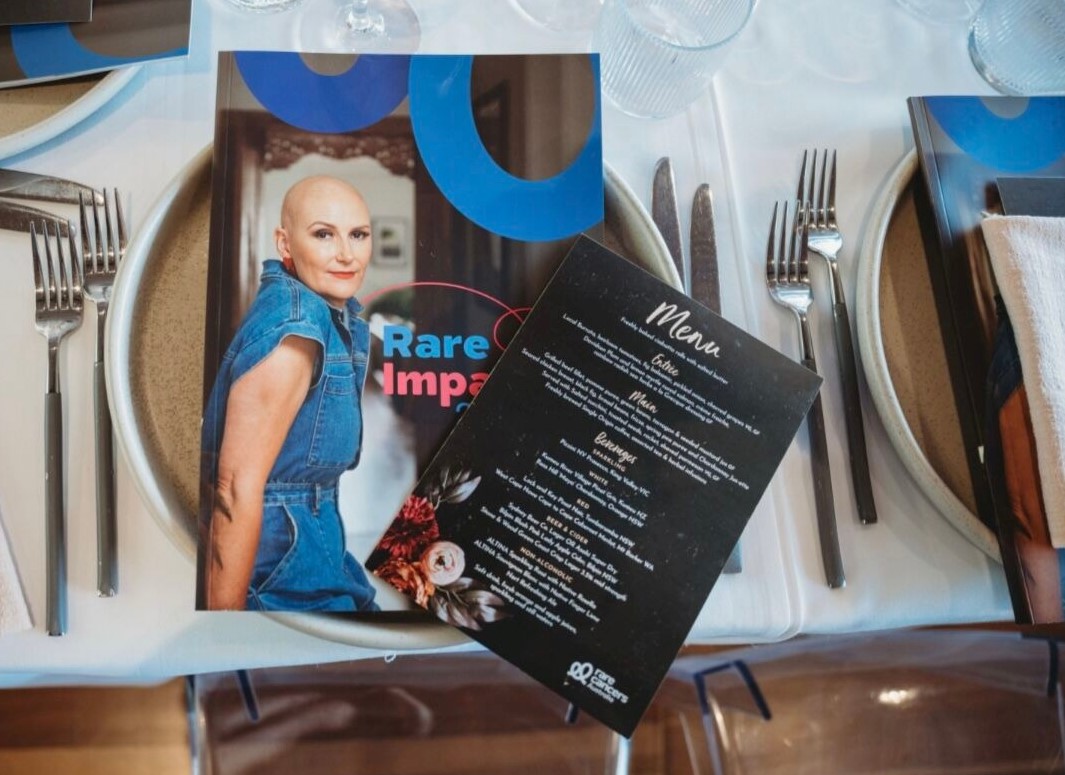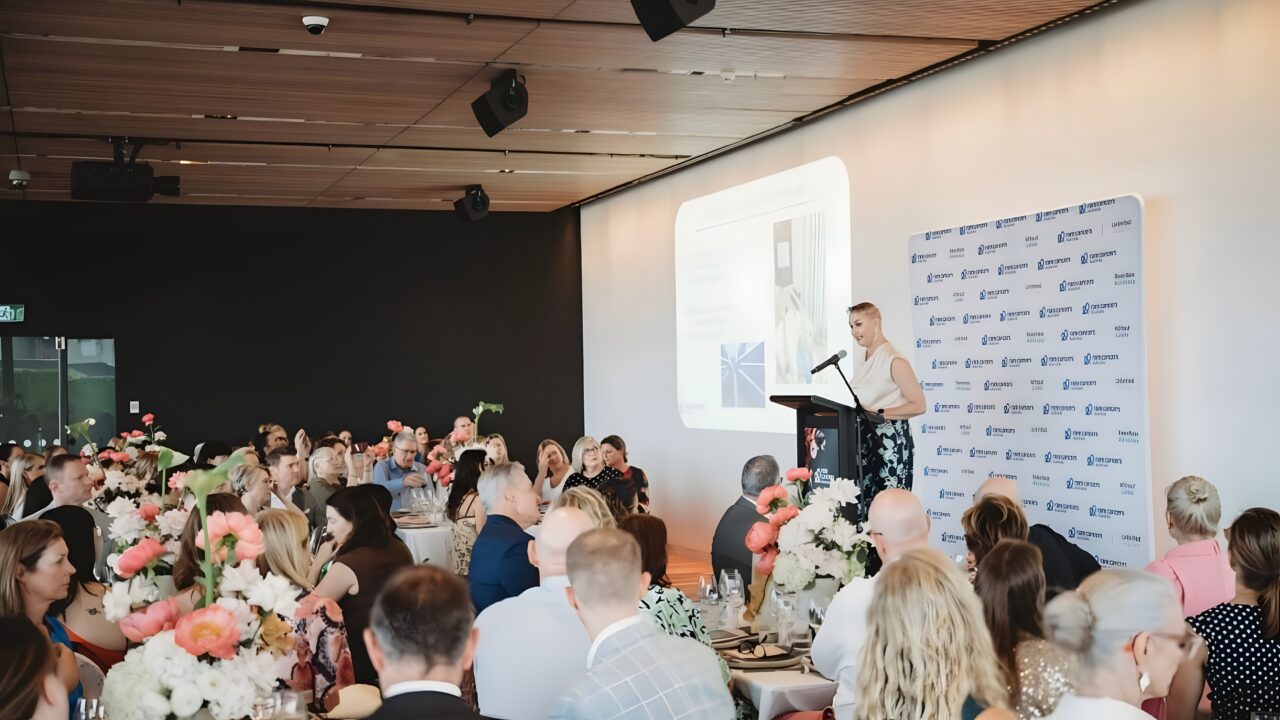Caitlin Delaney, Chair of the National Patient Advisory Committee and Patient-Partnered Research at VCCC Alliance, shared on LinkedIn:
“As a Rare Cancers Ambassador it was an honour to deliver a keynote at the Rare Cancers Australia Rare Long Lunch last Friday, and connect with a room full of wonderful RCA supporters.
RCA launched their annual impact report at the event, outlining their incredible work. This includes the many mums with cancer they have supported via Mummy’s Wish.
At the event I shared lessons learnt since my diagnosis, especially over the past gruelling year. In short they are:
Make Genomics First, Not Last:
Genomics should be standard of care at diagnosis and at recurrence. And accessible pantumour treatments must be made available on the back of genomics. Because knowing you have a lifeline and being told you can’t afford to grab it is cruel.
The Promise and Pitfalls of Clinical Trials:
The potential of clinical trials is immense, but only if we make them more humane. Don’t make patients feel like lab rats – respect the time toxicity and financial toxicity involved and ensure high quality supportive care is embedded in trial design. Even better – co-design trials with us!
Supportive Care is Essential, Not Optional:
The so-called ‘soft stuff’ — is what makes the hard stuff possible. Supportive Care – such as that I receive from Professor Judith Lacey and her team – should be embedded in every treatment plan, not bolted on when the wheels fall off. And can we also PLEASE formally recognise cancer as a disability – especially incurable, metastatic cancer – to unlock access to services and funding.
The Three Cs: Compassion, Collaboration, and CoDesign:
Compassion builds trust and saves.
Collaboration speeds up innovation and the bench to bedside process.
Co-Design means letting go of control and inviting patients to be present when decisions are being shaped. Not added in at the end as a tokenistic tick-box exercise.
Resilience Lives in Community.
Resilience isn’t something I am; it’s something I borrow — from the people around me.
Listen to Your Patient.
We are the experts in how we feel. We know our bodies and we know when something’s off long before the blood tests or scans catch up.
Turning Pain into Advocacy.
Advocacy at a system level is strategic and necessary, but it’s also exhausting and triggering. Connecting with other advocates hugely helps. Strong advocates such as Sarah McGoram (Fehon) OAM, who has been living with a rare cancer for 30 years now, and has just been announced as a finalist in the ACT Australian of the Year Awards.
You can read the RCA Impact Report here.
Thank you Christine Cockburn and Alicia Ballesty for the lovely article, and to the entire RCA team – thank you for supporting us rare cancer patients so well and giving us hope.”

More posts featuring Caitlin Delaney.


